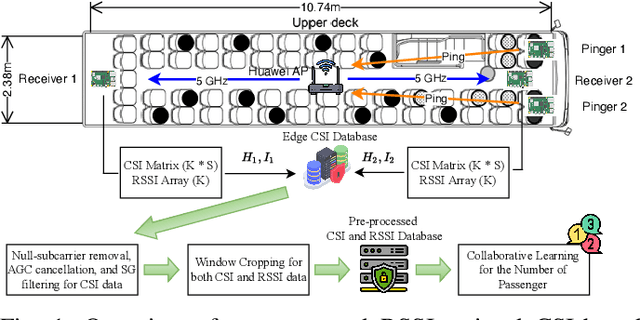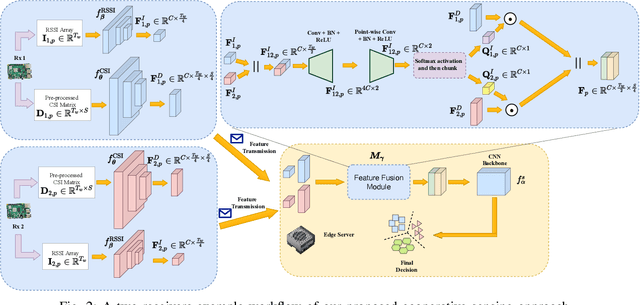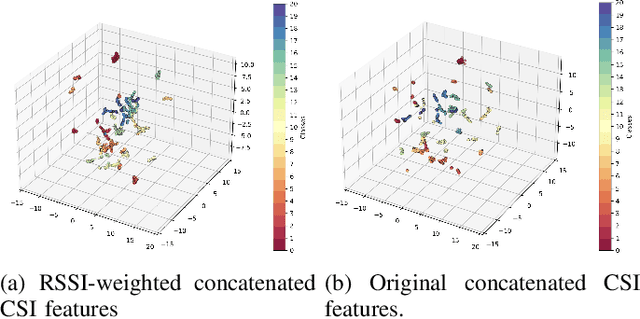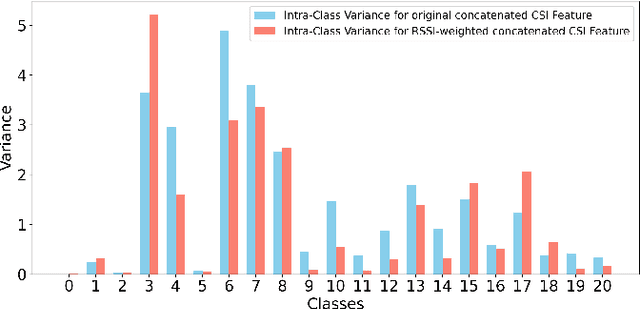Wenhao Zhuang
SWE-Compass: Towards Unified Evaluation of Agentic Coding Abilities for Large Language Models
Nov 07, 2025Abstract:Evaluating large language models (LLMs) for software engineering has been limited by narrow task coverage, language bias, and insufficient alignment with real-world developer workflows. Existing benchmarks often focus on algorithmic problems or Python-centric bug fixing, leaving critical dimensions of software engineering underexplored. To address these gaps, we introduce SWE-Compass1, a comprehensive benchmark that unifies heterogeneous code-related evaluations into a structured and production-aligned framework. SWE-Compass spans 8 task types, 8 programming scenarios, and 10 programming languages, with 2000 high-quality instances curated from authentic GitHub pull requests and refined through systematic filtering and validation. We benchmark ten state-of-the-art LLMs under two agentic frameworks, SWE-Agent and Claude Code, revealing a clear hierarchy of difficulty across task types, languages, and scenarios. Moreover, by aligning evaluation with real-world developer practices, SWE-Compass provides a rigorous and reproducible foundation for diagnosing and advancing agentic coding capabilities in large language models.
AI Flow: Perspectives, Scenarios, and Approaches
Jun 14, 2025Abstract:Pioneered by the foundational information theory by Claude Shannon and the visionary framework of machine intelligence by Alan Turing, the convergent evolution of information and communication technologies (IT/CT) has created an unbroken wave of connectivity and computation. This synergy has sparked a technological revolution, now reaching its peak with large artificial intelligence (AI) models that are reshaping industries and redefining human-machine collaboration. However, the realization of ubiquitous intelligence faces considerable challenges due to substantial resource consumption in large models and high communication bandwidth demands. To address these challenges, AI Flow has been introduced as a multidisciplinary framework that integrates cutting-edge IT and CT advancements, with a particular emphasis on the following three key points. First, device-edge-cloud framework serves as the foundation, which integrates end devices, edge servers, and cloud clusters to optimize scalability and efficiency for low-latency model inference. Second, we introduce the concept of familial models, which refers to a series of different-sized models with aligned hidden features, enabling effective collaboration and the flexibility to adapt to varying resource constraints and dynamic scenarios. Third, connectivity- and interaction-based intelligence emergence is a novel paradigm of AI Flow. By leveraging communication networks to enhance connectivity, the collaboration among AI models across heterogeneous nodes achieves emergent intelligence that surpasses the capability of any single model. The innovations of AI Flow provide enhanced intelligence, timely responsiveness, and ubiquitous accessibility to AI services, paving the way for the tighter fusion of AI techniques and communication systems.
SRPO: A Cross-Domain Implementation of Large-Scale Reinforcement Learning on LLM
Apr 22, 2025



Abstract:Recent advances of reasoning models, exemplified by OpenAI's o1 and DeepSeek's R1, highlight the significant potential of Reinforcement Learning (RL) to enhance the reasoning capabilities of Large Language Models (LLMs). However, replicating these advancements across diverse domains remains challenging due to limited methodological transparency. In this work, we present two-Staged history-Resampling Policy Optimization (SRPO), which surpasses the performance of DeepSeek-R1-Zero-32B on the AIME24 and LiveCodeBench benchmarks. SRPO achieves this using the same base model as DeepSeek (i.e. Qwen2.5-32B), using only about 1/10 of the training steps required by DeepSeek-R1-Zero-32B, demonstrating superior efficiency. Building upon Group Relative Policy Optimization (GRPO), we introduce two key methodological innovations: (1) a two-stage cross-domain training paradigm designed to balance the development of mathematical reasoning and coding proficiency, and (2) History Resampling (HR), a technique to address ineffective samples. Our comprehensive experiments validate the effectiveness of our approach, offering valuable insights into scaling LLM reasoning capabilities across diverse tasks.
Privacy-Aware Multi-Device Cooperative Edge Inference with Distributed Resource Bidding
Dec 30, 2024



Abstract:Mobile edge computing (MEC) has empowered mobile devices (MDs) in supporting artificial intelligence (AI) applications through collaborative efforts with proximal MEC servers. Unfortunately, despite the great promise of device-edge cooperative AI inference, data privacy becomes an increasing concern. In this paper, we develop a privacy-aware multi-device cooperative edge inference system for classification tasks, which integrates a distributed bidding mechanism for the MEC server's computational resources. Intermediate feature compression is adopted as a principled approach to minimize data privacy leakage. To determine the bidding values and feature compression ratios in a distributed fashion, we formulate a decentralized partially observable Markov decision process (DEC-POMDP) model, for which, a multi-agent deep deterministic policy gradient (MADDPG)-based algorithm is developed. Simulation results demonstrate the effectiveness of the proposed algorithm in privacy-preserving cooperative edge inference. Specifically, given a sufficient level of data privacy protection, the proposed algorithm achieves 0.31-0.95% improvements in classification accuracy compared to the approach being agnostic to the wireless channel conditions. The performance is further enhanced by 1.54-1.67% by considering the difficulties of inference data.
RSSI-Assisted CSI-Based Passenger Counting with Multiple Wi-Fi Receivers
Oct 15, 2024



Abstract:Passenger counting is crucial for public transport vehicle scheduling and traffic capacity evaluation. However, most existing methods are either costly or with low counting accuracy, leading to the recent use of Wi-Fi signals for this purpose. In this paper, we develop an efficient edge computing-based passenger counting system consists of multiple Wi-Fi receivers and an edge server. It leverages channel state information (CSI) and received signal strength indicator (RSSI) to facilitate the collaboration among multiple receivers. Specifically, we design a novel CSI feature fusion module called Adaptive RSSI-weighted CSI Feature Concatenation, which integrates locally extracted CSI and RSSI features from multiple receivers for information fusion at the edge server. Performance of our proposed system is evaluated using a real-world dataset collected from a double-decker bus in Hong Kong, with up to 20 passengers. The experimental results reveal that our system achieves an average accuracy and F1-score of over 94%, surpassing other cooperative sensing baselines by at least 2.27% in accuracy and 2.34% in F1-score.
Approximate Message Passing-Enhanced Graph Neural Network for OTFS Data Detection
Feb 15, 2024



Abstract:Orthogonal time frequency space (OTFS) modulation has emerged as a promising solution to support high-mobility wireless communications, for which, cost-effective data detectors are critical. Although graph neural network (GNN)-based data detectors can achieve decent detection accuracy at reasonable computation cost, they fail to best harness prior information of transmitted data. To further minimize the data detection error of OTFS systems, this letter develops an AMP-GNN-based detector, leveraging the approximate message passing (AMP) algorithm to iteratively improve the symbol estimates of a GNN. Given the inter-Doppler interference (IDI) symbols incur substantial computational overhead to the constructed GNN, learning-based IDI approximation is implemented to sustain low detection complexity. Simulation results demonstrate a remarkable bit error rate (BER) performance achieved by the proposed AMP-GNN-based detector compared to existing baselines. Meanwhile, the proposed IDI approximation scheme avoids a large amount of computations with negligible BER degradation.
 Add to Chrome
Add to Chrome Add to Firefox
Add to Firefox Add to Edge
Add to Edge